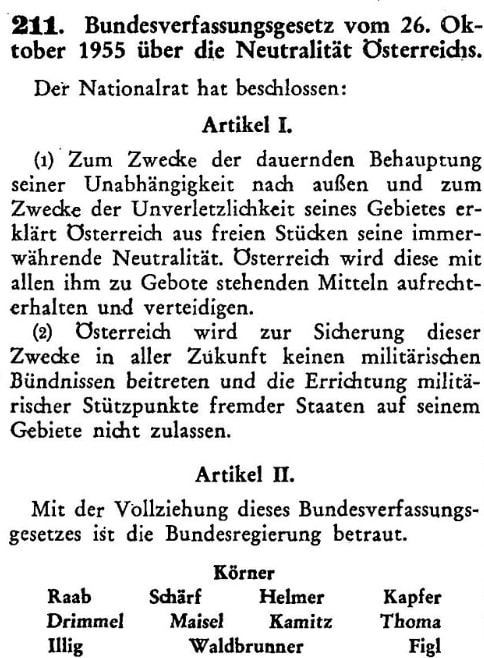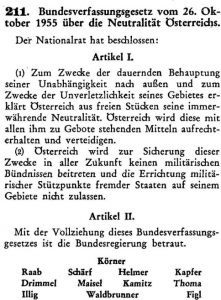(This post is a work in progress; it is likely to get changed and updated whenever my opinions shift or I have had occasion to think more about different aspects of the subject. Last update: 2022-01-18 17:15:18)
We’re at the beginning of the third year of the global Covid-19 pandemic, and the widely differing opinons on the pandemic, and on the various measures taken by governments and businesses to deal with it increasingly divide society, affecting families, churches, workplaces, and of course politics. Here are some of my thoughts on the subject.
First a few words regarding my personal situation: I waited a long time to get vaccinated because it seemed a logistical nightmare, due to my health-related mobility problems. My GP does not vaccinate, and normally does not do house calls, either. The various vaccination stations either required long walks from the car park, or else (in the case of mobile stations) long waits outside, neither of which appealed to me. And in view of my living arrangements, in a remote village and again, due to my mobility problems, my largely house-bound state, I did not see the urgency.
In mid-December the opportunity arose, on the occasion of a visit with my daughter, to have her GP come to the house and give me a jab, and in a couple of weeks we will repeat this exercise for my second jab.
In my immediate family there are several people who are unvaccinated by conviction, and who wish to remain so, and I must and can live with that, and live well with that.
When it comes to the big discussion the first question is, of course, whether the pandemic is a thing or not, whether it isn’t simply a new variant of the flu, which we ought to treat just like the flu, with voluntary vaccinations, vitamins, and rest, and nothing more. Those who hold this opinion usually doubt official statistics on the higher mortality of Covid-19 or the strain on the healthcare system; they assume that the numbers have been manipulated by governments in order to justify those draconian restrictions of our civil rights which they impose for undefined but certainly malevolent reasons.
I find this hard to believe:
When I look at our politicians, both here in Europe, in America, and elsewhere on this earth, they do not strike me as intellectual giants, nor as the most knowledgable and able people (those typically occupy the much better paid positions in the business world). I don’t believe for one second that these basically second-rate people, across the entire political spectrum, manage to conduct a worldwide conspiracy which only a handful of cogniscenti have penetrated; that they manage to seduce the media, business (which, with the exception of vaccine and mask producers suffer from the restrictions), as well as the entire medical establishment to quietly go along with their conspiracy. After all, we are here talking about people who are surprised that their text and WhatsApp messages can be used to blow their corrupt deals wide open; we are talking about people who are surprised that the voters are not thrilled when they impose restrictions on us and then flout them, etc.
For such a conspiracy to work the majority of the world’s medical doctors would have to be corrupt and play along; business people whose companies are at risk because of lockdown etc. would have to be quiet; really all politicians would have to be corrupt.
It’s the adherents of such conspiracy theories who drive the divisions in society because they consider anyone who complies with the restrictions to be complicit and traitors who cannot be trusted.
There are others however, who do not believe in a worldwide conspiracy but have various doubts about the need for and the efficacy of the measures imposed by government, whether it is masks, social distancing, or vaccinations. Others consider the potential risks of vaccination to be greater than the risk of dying from Covid-19; or, among Christians, who do not see death as a huge tragedy and prefer it to potentially disabling permanent side effects of vaccination. I think that such considerations, such views deserve some respect even where we disagree; we should feel free, however, to restrict our contact with people who hold such views if we consider it necessary for our own safety.
So what do I think of the various measures imposed by government to deal with Covid-19?
I have absolutely no doubt that the measures are not always well thought through, and of course they are not either argued or communicated in an optimal manner. The reason for this is exactly that weakness and imperfection of our politicians which has me doubt the global conspiracy, as well as the tension between the need for measures and restricitions on the one hand, and the realization that implementing such restrictions could negatively affect a future election outcome: If government does not implement measures and restrictions to guard against the risks of the pandemic, and there is a sudden rise in the number of deaths, or a collapse of parts of the health care system, they will get blamed and may loose the next election. If, on the other hand, they implement all the measures recommended by the experts, when they, for example, require that masks be worn, or impose a lockdown, people may get so annoyed that they will vote for someone else next time around. This tension frequently causes politicians to do what is likely to result in the biggest number of votes, rather than what their conscience tells them is the right thing to do; this is one of the biggest weaknesses of democracy, however, the alternative systems of government have their own, even worse weaknesses.
Add to this the fact that politicians, both those in government and those in opposition, are typically neither medical nor economic experts but depend on expert advisers. Even when there is broad consensus on the necessary measures and restriction, there are also frequently very loud and vocal dissenters, and this makes it even more difficult to know what is the right course of action.
The other big question is how we as Christians should deal with the pandemic and with the “Covid Culture Wars”. I maintain a directory of evangelical churches in Austria, and have recently added a page summarizing the relevant government rules and regulations as they pertain to churches and church services. On this page I linked to two videos by two German Christian leaders, Johannes Reimer and Johannes Hartl, and I also linked to statements from the Evangelical Alliances in Austria and Germany (sorry, all of that is only in German).
Das andere große Thema ist die Frage, wie wir als Christen sowohl mit der Pandemie als auch mit dem großen Streit darüber umgehen. Auf der Covid-Infoseite auf dem Österreichischen Freikirchenatlas habe ich zwei Videos verlinkt, eines von Johannes Hartl, und eines von Johannes Reimer, sowie Stellungnahmen der Evangelischen Allianz in in Österreich und Deutschland.
I also wrote the following: “As Christians we are called to regard others higher than ourselves, and to obey the laws of the state as long as they do not contradict the commandments of God. And we are not to usurp God’s role as judge, and for this reason I would like to challenge us, as followers of Jesus, to be very careful in how we express our opinions. Much of what irritates us when it comes to government measures is most likely not the result of lies or an attempt to brazenly restrict our civil rights, but rather the result of politicians being overwhelmed by the situation and the tension between possibly necessary measures and the desire to win the next election and thus not to excessively annoy voters. I am expressly not saying that we should not criticize government — that is our constitutional right — but we should not be quick to attribute malevolent motives to people, not to mention dealing in conspiracy theories.”
On January 18 German evangelist Ulrich Parzany posted on Facebook, “In view of the painful conflicts in Christian churches regarding vaccination and Corona restrictions I recommend reading Romans 14 and 15. However, there’s still plenty of conflict potential there: Who are the strong, and who are the weak? Those who advocate vaccination? Those who oppose it? In any case, it would be helpful if both sides stopped swinging their moral baseball bats.”
That was not a very successful appeal as the comments show: with a few exceptions, both sides continued to swing their “moral baseball bats”.
And actually, one can read Romans 14 in such a way as to defuse this situation. Let me paraphrase Romans 14:2 in two different ways:
One person believes he should be vaccinated, while one who is weak does not want to be vaccinated. One who is vaccinated must not judge one who is not vaccinated, because God has accepted him.
and—
One person believes vaccination to be unnecessary and dangerous, while one who is weak considers vaccination to be good and necessary. One who is not vaccinated must not judge one who is vaccinated, because God has accepted him.
The argument that opposition to vaccination is objectively wrong, or that it springs from a sinful ideology (as one of the commenters writes rather judgmentally) is as irrelevant here as the fact that Paul says that the Jewish food rules absolutely don’t apply to Christians. Accepting the other because God has accepted him (or her) has absolute priority here.
We should also remember that the Apostle Paul says in 2 Corinthians 1:5 that we should take every thought captive to obey Christ. And Christ tells us in Matthew 5:22f, «Everyone who is angry with his brother or sister will be subject to judgment. Whoever insults his brother or sister will be subject to the court. Whoever says “You fool!” will be subject to hellfire.» Therefore we would be well-advised, when we think of those we disagree with, even if we consider their views wrong and foolish, to discipline our thoughts to think “This man, or this brother, is wrong!”, rather than “This idiot is wrong.” I am convinced that if we disciplined our thoughts in this way, we would end up treating each other differently.
And let us not forget that we owe each other respect not because of our correct opinions, but because we are all created in the image of God, however distorted that image might be by sin or ignorance.
Then, when some argue that love of neighbor requires one to be vaccinated, keep in mind that every one of us is responsible for our own loving or unloving actions; pointing the finger at others has never been helpful.
Here are a few more thoughts on the notion that the pandemic and the restrictive measures implemented by government are some sort of conspiracy to restrict and take away our civil rights:
Especially here in Austria I would be very careful with such accusations. Unlike in some other countries, here in Austria churches and church services are explicitly excempted from the various Covid-related regulations; the public health orders explicitly excempt “venues for the practice of religion”, and every lockdown, including the lockdown for the unvaccinated which is still in force, had as one of the exceptions the “satisfaction of basic religious needs”, with government clearly stating that that his includes attendance at church services.
Basically Christian churches (and other religious organizations) are responsible to make their own rules as seems good and necessary to them; the most elaborate such rules are the Guidelines for Church Services (sorry, German only) by the Austrian Roman-Catholic Bishops’ Conference. It contains this remarkable sentence which evangelical churches would do well to adopt: “In order to not exclude anyone a priory from attending church services participation continues to be possible without proof or minimal epidemiological risk as defined by government regulations (i.e. tested, vaccinated or recovered).”
This situation concerning church services, as well as the fact that regular public demonstrations against the government’s measures continue unhindered, despite the fact that a majority of demonstrators ignore the distancing and mask requirements, is sufficient evidence for me that the government is not simply trying to restrict or take away our civil rights — else this is where they would have started.


 In this photo taken from a video clip circulated on Telegram and Twitter, a captured young Russian soldier is seen sipping tea and eating a snack as he tries to compose himself. A woman standing next to him is trying to connect a video call to his home. Soon the call connects and the soldier breaks into tears. He looks too stunned to speak but he blows kisses to the camera, as people pat him on his back to calm him down. In the video a bystander can be heard saying in the video, “These young men, it’s not their fault. They don’t know why they are here.” Another person joins him and says, “They are using old maps, they are lost.”
In this photo taken from a video clip circulated on Telegram and Twitter, a captured young Russian soldier is seen sipping tea and eating a snack as he tries to compose himself. A woman standing next to him is trying to connect a video call to his home. Soon the call connects and the soldier breaks into tears. He looks too stunned to speak but he blows kisses to the camera, as people pat him on his back to calm him down. In the video a bystander can be heard saying in the video, “These young men, it’s not their fault. They don’t know why they are here.” Another person joins him and says, “They are using old maps, they are lost.”